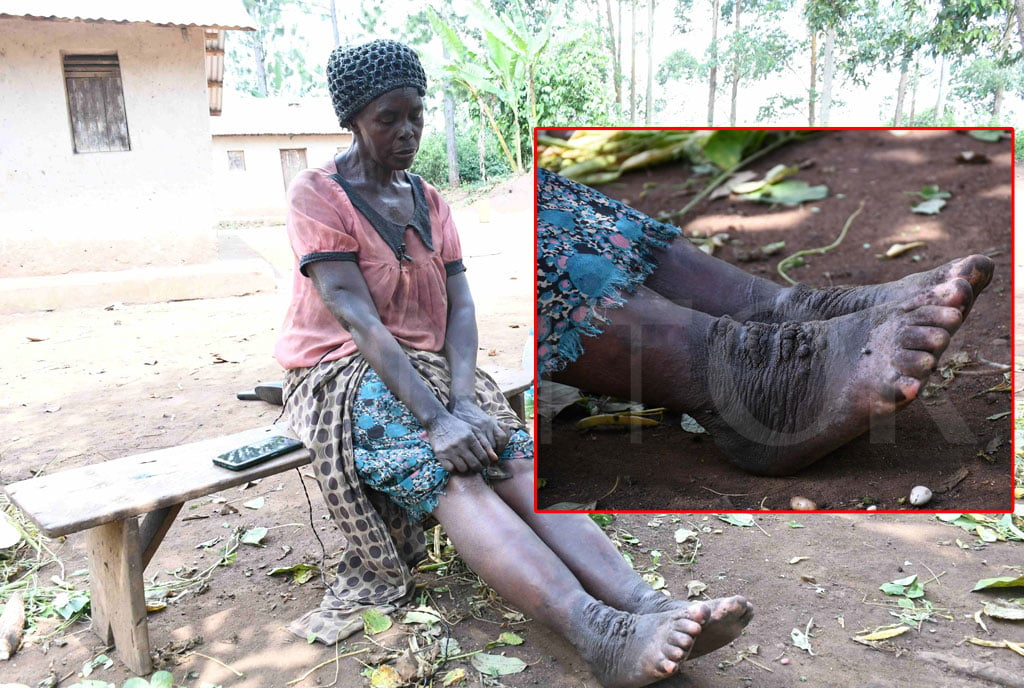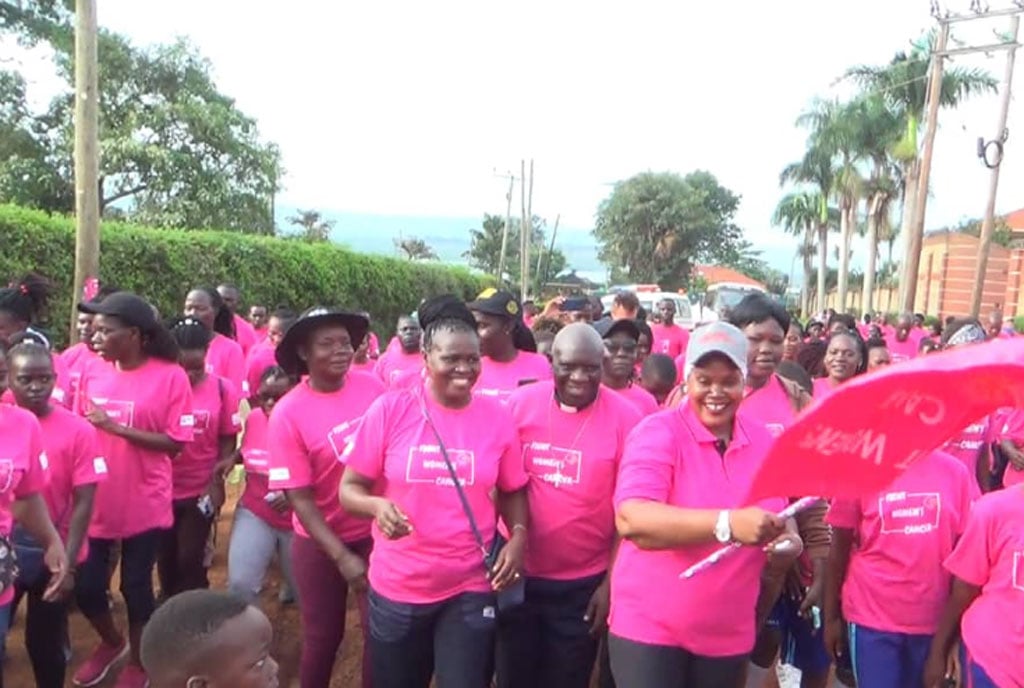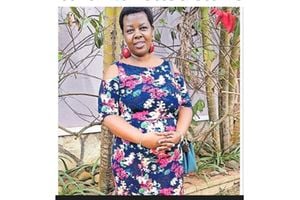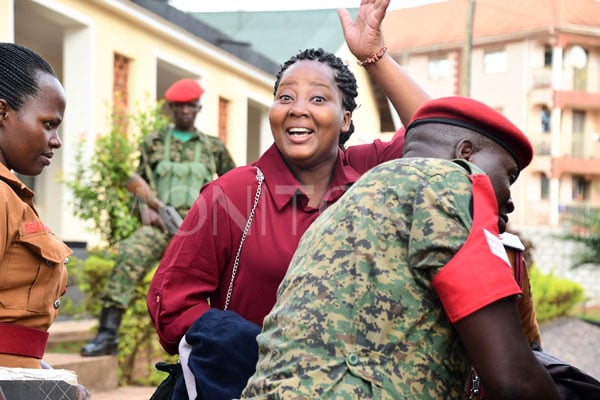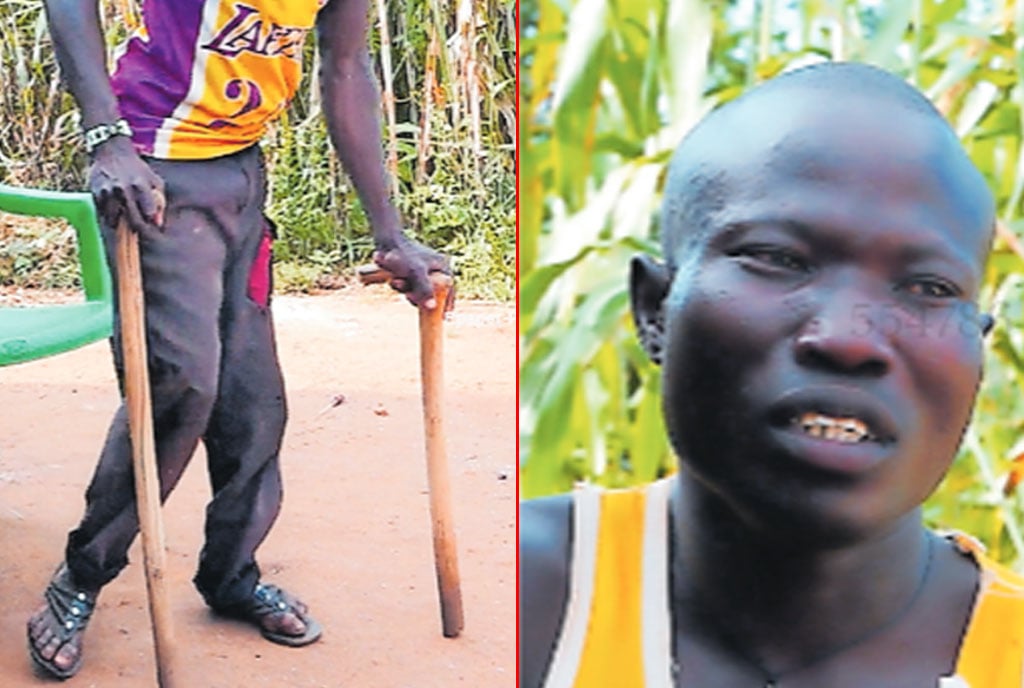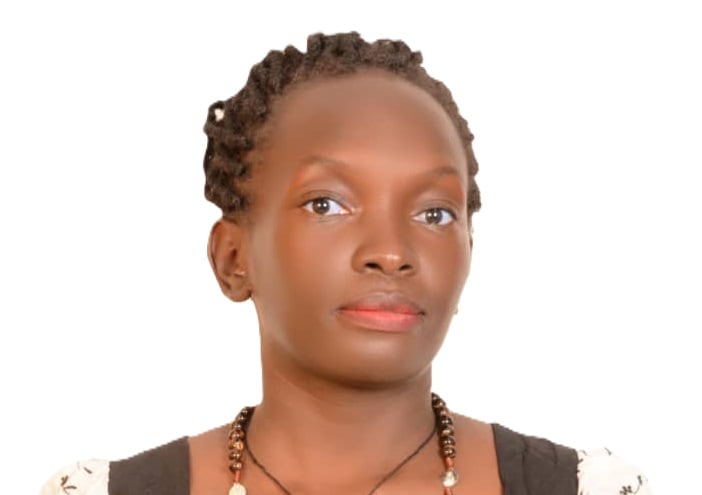
Maureen Kibetenga
Surviving cancer is a profound milestone that marks the triumph of the human spirit over an incredibly challenging and often life-threatening illness. It signifies not just physical healing but also emotional resilience, mental strength and the support of loved ones. Each cancer survivor has endured rigorous treatments, uncertainty and fear, emerging with a renewed sense of life and purpose. Celebrating this victory acknowledges the courage and determination it takes to face such adversity, and it honours the personal growth and hope that comes with overcoming one of life’s most difficult battles.

Joyce Namubiru
Maureen Kibetenga’s battle with non-hodgkin lymphoma
Maureen Kibetenga, now 31, had been battling illness since 2011 while she was still a Senior Five student. She had nearly given up hope after visiting numerous hospitals in and around Mbarara City in western Uganda without finding any relief. “I still feel sick to this day, but I have learnt to live with it,” Maureen shares.
“It all started in 2011 when my legs began swelling, and my entire body ached. Despite visiting hospitals, doctors could not figure out what was wrong. I even had injured legs, wore socks for warmth, and walked with sticks.” After graduating in 2018, Maureen’s condition worsened, her face swelled, and she began losing hair. Doctors initially suspected malnutrition or allergies, but no concrete diagnosis was made. By 2021, she had lost significant weight, and she and her father visited several hospitals, still without answers.
“My parents separated when I was 10, but when I lost weight, my mother believed my father was not doing enough, so she took over my care,” Kibetenga says. It was not until Maureen found a doctor at Mbarara Regional Referral Hospital that she got closer to answers. The doctor suggested taking a sample from a small swelling in her armpit and breast. A month later, she returned for her results, which revealed stage III non-Hodgkin lymphoma, a type of cancer affecting the lymphatic system.
“The diagnosis was a relief after years of not knowing what was wrong,” Maureen recalls. “Even though I should have been scared, I was just glad to finally know.”
Her family was frightened, but also relieved they now knew what to treat. After getting off her previous medications, she underwent further tests and began treatment shortly thereafter. Maureen underwent 17 cycles of chemotherapy between 2021 and 2022, which took a significant toll on her body and mind. “I dealt with nausea, vomiting, diarrhoea, depression, and bipolar disorder. At one point, my father even thought I had gone mad and kept me isolated, which was especially hard for me.” Despite the challenges, she persevered, attending monthly hospital reviews. On October 17, 2024, Maureen received some encouraging news, the cancer cells were no longer detectable, though she still needs regular reviews.
Joyce Namubiru: Conquering breast cancer
In 2011, while bathing, Joyce Namubiru discovered a lump in her breast. Although the lump was not painful, it concerned her, so she visited a local clinic. A nurse assured her that since the colour of her breast had not changed, it was not cancer. However, Joyce was still uneasy and sought a second opinion at Entebbe Grade B Hospital, where a doctor referred her for a mammogram. The results showed the mass was non-cancerous, but Joyce was not convinced.The doctor referred her to a surgeon for removal of the mass and a biopsy. The biopsy revealed that Joyce had breast cancer.
"I cried uncontrollably when I received the diagnosis," she recalls. "But after a while, I realised that crying would not help, so I asked the doctor what I needed to do."Joyce began chemotherapy in February 2012. After three cycles, she underwent surgery to remove the breast, followed by more chemotherapy and radiotherapy. She was also prescribed a 10-year course of hormonal therapy with Tamoxifen."I completed my hormonal therapy and no longer need cancer treatment. I battled cancer and won."
JOYCE LAKER: CERVICAL CANCER SURVIVOR
Joyce Laker, a social worker from Gulu City in northern Uganda, was diagnosed with cervical cancer in January 2011. At just 29, and having recently graduated, she initially thought she was pregnant. A scan at Gulu Independent Hospital confirmed her pregnancy, but two weeks later, she began bleeding. Joyce was rushed back to the hospital, where she received a blood transfusion and was advised to get a biopsy.

Joyce Laker
“When the results came in, my husband was called in first. I remember sitting in the waiting area,” Joyce recalls. “When we went home, my husband hugged me, crying. That is when I learnt I had cancer. I was devastated; I felt like my life had ended.” Her condition worsened, and she was transferred to Lacor Hospital, where a doctor recommended additional tests. Despite being diagnosed with stage I cervical cancer, Joyce resisted the idea of having her uterus removed.
“My husband and family tried to convince me it was for the best, and although I still did not want the surgery, I eventually agreed,” she says However, a delay in surgery due to missing blood test results turned out to be a blessing. When the hospital director reviewed her case, he decided the cancer was still in its early stages and surgery was unnecessary. Joyce was referred to the Uganda Cancer Institute, where she began chemotherapy in April 2011.
“The side effects were brutal,” she remembers. “I had diarrhoea, nausea, hair loss, darkened skin and nails, and sores in my mouth. By the fourth cycle, I was ready to quit.”
But encouragement from a fellow survivor kept her going, and after completing chemotherapy, she transitioned to regular follow-ups. Now, 13 years later, Joyce is a cancer survivor. As a survivor, Joyce lives a healthy lifestyle, focusing on a balanced diet, rest, and physical activity. She also emphasises the importance of support; “You cannot fight cancer alone. Support from friends, family, and other survivours is invaluable. Joining groups such as Uganda Women Cancer Support Organisation (UWOCASO) can be life-changing.”
ISAAC KAISUKA’S FIGHT AGAINST BREAST CANCER
At 50, Isaac Kaisuka, a resident of Bupadhengo Village in Kamuli District, is one of the few men who have publicly shared their battle with breast cancer. In 2021, after hearing a radio segment about breast cancer, he discovered a lump in his left breast. “When I felt the lump, I suspected it was cancer, but many people told me hospital treatments could kill me,” Isaac explains.

Maureen Kibetenga
“I went to a herbalist, but the swelling only worsened,” he says. Eventually, Isaac sought help at Rays of Hope in Jinja District in eastern Uganda. After being referred to Kyabirwa Surgical Centre, his breast was removed, and a biopsy confirmed the diagnosis of breast cancer. Further tests at the UCI revealed that the cancer had spread to his lung. Isaac took his treatments seriously, never missing an appointment. “I stayed at the Cancer Institute on the days I received chemotherapy, but I always received support from Rays of Hope.”
In September 2024, Isaac completed his radiotherapy treatment. While he still suffers from a persistent cough, a side effect of treatment, his doctors have informed him that the cancer cells are dying. He will have his next review in November 2024.
